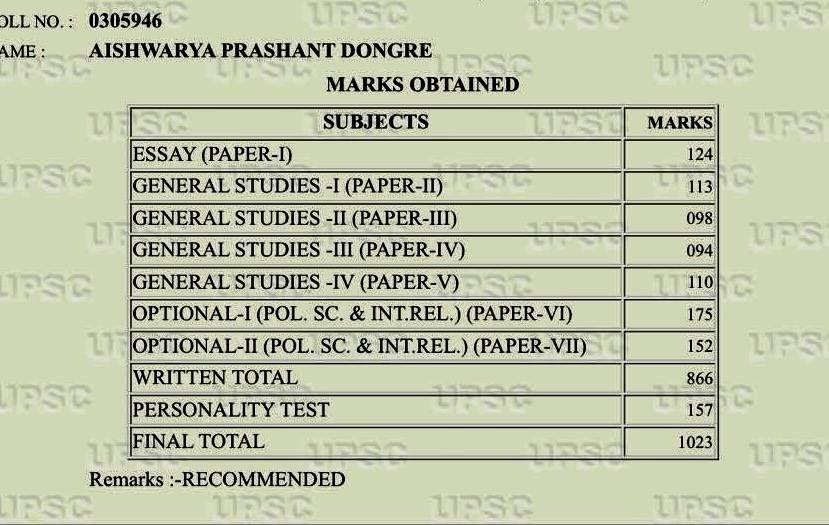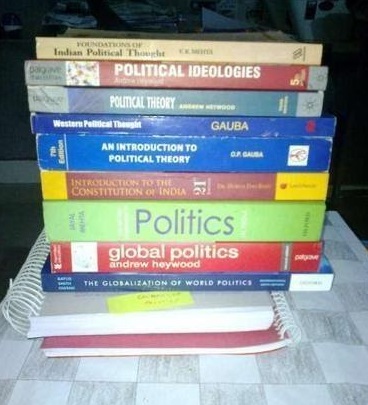(Getting Started) Complete Guide To Approaching PSIR Optional
(Getting Started) Complete Guide To Approaching PSIR Optional
Each year lakhs of aspirants sit for the Civil Services Examination conducted by UPSC. Only a few make it to the final list. The mains stage is the stage that makes and breaks one's attempt and largely decides your rank. The total marks covered in the mains stage is 1750, and out of it, the optional paper alone covers 500 marks in its 2 papers, each of 250 marks. Whereas the average score of successful aspirants in general studies papers ranges between 40-50%, one can score up to 70% in their optionals. Therein lies the importance of your optional.

PSIR can be very scoring
Why Choose Political Science and International Relations (PSIR) Optional?
Once you identify your interest in the subject, Political Science and International Relations is an excellent choice of optional for the following reasons –
- The upsc syllabus covers a chunk of the prelims and mains general studies syllabus. Around 60% of the syllabus of this optional directly or indirectly overlaps with your general studies syllabus.
- The syllabus is not vague and easy to follow.
- It's a relatively straight forward subject and can be grasped by even those who don't have a humanities background.
- It's an added advantage for a bureaucrat to be familiar with the concepts.
Basic Content

Booklist for PSIR
Paper-I
Section-A
- Political Theory – Meaning and approaches – Shubhra Ranjan Notes
- Theories of State – OP Gauba Political Theory and Shubhra Ranjan Notes
- Justice – Andrew Heywood Political Theory and Shubhra Ranjan Notes and Yale's Youtube Channel (Rawl's Theory of Justice)
- Equality – OP Gauba, Boxes in Andrew Heywood, Shubhra Ranjan Notes
- Rights – Shubhra Ranjan Notes
- Democracy - OP Gauba, Boxes in Andrew Heywood, Shubhra Ranjan Notes
- Concepts – POWER from Shubhra Ranjan Notes, HEGEMONY in GRAMSCI, IDEOLOGIES from Andrew Heywood, LEGITIMACY from Shubhra Ranjan Notes, and IGNOU Notes
- Political Ideologies – Andrew Heywood Political Ideologies
- Western and Indian Thinkers – Shubhra Ranjan Notes and IGNOU Notes
Section-B
- Indian Nationalism – Spectrum Modern India
- Perspectives on Indian Nationalism – Shubhra Ranjan Notes
- Making of Indian Constitution – Laxmikanth
- Salient Features of the Indian Constitution – Laxmikanth
- Principle Organs – Internet
- Grassroots Democracy – Laxmikanth
- Statutory Institutions – Laxmikanth
- Federalism – Laxmikanth
- Planning and Economic Development – NCERT Indian Economic Development | NCERT Books Notes PDF
- Caste, Religion, Ethnicity – Shubhra Ranjan Notes
- Party System – Shubhra Ranjan Notes
- Social Movements – Shubhra Ranjan Notes

Paper-II
Section-A
- Comparative Politics – Shubhra Ranjan Notes
- Globalization – Shubhra Ranjan Notes and Andrew Heywood
- Approaches to IR – World Politics by Owen and Smith, Shubhra Ranjan Notes
- Key IR Concepts – Andrew Heywood, Subhra Ranjan Notes
- Changing International Political Order – World Politics Class XII NCERT, Shubhra Ranjan Notes | NCERT Books Notes PDF
- Evolutions of International Economic System – Andrew Heywood, Shubhra Ranjan Notes
- United Nations – Shubhra Ranjan Notes, Andrew Heywood
- Regionalization of World Politics – Shubhra Ranjan Notes
- Contemporary Global Concerns – Andrew Heywood, Subhra Ranjan Notes
Section B
- India's Foreign Policy – Subhra Ranjan Notes
- India's Contribution to NAM – Shubhra Ranjan Notes
- India and South Asia – Shubhra Ranjan Notes
- India and Global Centres of Power – Shubhra Ranjan Notes, David Malone's Does The Elephant Dance
Current Affairs
Keep an eye out for news covering India's relation to the world, global conferences, MoUs, etc. Read editorials by writers like Suhasini Haider, Hussain Haqqani, Pratap Bhanu Mehta, etc.
Timeline
Have all your initial studying and preparing notes completed by December. After prelims, concentrate on revision. Attempt one or two answers every day. Keep practicing, go through previous years' questions multiple times and you'll be all set. Don't get frustrated if it goes slower than expected; it's only normal.
Keep trying and you'll score your best. All the best!

CLICK HERE TO DOWNLOAD UPSC TOPPERS NOTES


